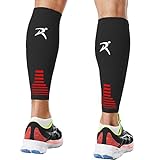- Home
- Running Nutrition
- Nutrition and Exercise Performance
The Link Between Nutrition and Exercise Performance: Healthy Habits for Runners
FTC Disclosure: As an Amazon Associate, I earn from qualifying purchases. Learn more
Runners are required to be in great shape and in good health to ensure that they can tackle their targets and goals. However, numerous lifestyle factors play a part in determining whether or not an individual can meet the physical demands of running. One such factor is a runner’s eating patterns. In a Nutrients study on the dietary intake of recreational endurance runners, it’s seen that nutrition plays a significant role in the performance of runners.
When these athletes receive insufficient dietary intake, they may experience negative consequences for performance, such as diminished bone mineral density, immune function abnormalities, and muscle catabolism (where muscle mass is decreased).
All that considered, this article will provide a more comprehensive look at the link between nutrition and exercise performance and offer tips on how runners can enhance their performance through healthy habits.
What is the relationship between nutrition and exercise performance?
According to the referenced Nutrients study, it is important for runners to attain their daily nutritional requirements. As it stands, individuals can find it difficult to navigate through high levels of physical stress—seen in the likes of muscle damage, inflammation, and soreness—caused by training and competitive activities. This is why the International Society of Sport Nutrition recommends adequate consumption of carbohydrates and protein—as these are essential in the management of physical pressure and during post-running recovery.
Apart from that, recent research shows that body composition can affect an athlete’s health and performance. Particularly, a 2022 Sporting Bounce feature titled, ‘When Looking After Your Body Composition Helps You to Run Faster’ shares that having a high fat mass is associated with a low running speed. This is because having an increased weight can not only slow down runners, it can likewise cause stress to the muscles, ligaments, and tendons. In light of this, a runner’s body should strike the right balance of muscle and fat to have a great exercise performance.
In the next section, this article will expound on the healthy habits that can help runners do just that.
Healthy habits that runners should adopt for improved exercise performance
1. Prioritize protein sources
Our post ‘Proper Nutrition for Runners’ points out that bodybuilders
often pack on protein sources to build and
repair muscles. However, protein is equally essential in physical activities
such as running. After all, when running is done consistently, it can lead you
to damage your muscles in small amounts. Typically, the extent of damage is
dependent on how far and how fast you run, as well as personal factors like
your weight. That said, it’s recommended that runners consume about 0.75 grams
of protein per pound of body weight. On the other hand, those who weigh 150
pounds may want to up their intake to 112 grams of protein each day—especially
if you’re interested in running long distances. By increasing your protein intake,
you can ultimately bolster your performance and achieve your running goals.
2. Complement a balanced diet with a prescription weight-loss medication
Although a balanced diet ensures that your body receives the nutrients it needs
to function and better withstand exercise training, it is sometimes not enough.
According to a Frontiers article on endurance performance, genes can influence muscle fiber
composition. When this happens, it can be difficult to prevent injuries while
running. On the other hand, while managing your weight is beneficial in
maintaining great exercise performance, it can similarly be impacted by your
genetics. Thankfully, one recourse that runners can opt for is a medical weight loss solution. These
FDA-approved medications consider your biology to bolster your efforts in
keeping a healthy weight. Not only that, but these solutions also promote the
consumption of nutrient-rich foods such as fruits and veggies for effective
weight management. So on that note, get in touch with health experts that have
credentials in medical weight loss. In doing so, you can understand how to
incorporate prescription weight-loss medication into your routine and enhance
your overall running performance.
3. Fuel your body with healthy carbs
Running necessitates great endurance, especially if you’re planning on
participating in long-distance events. Luckily, fueling your body with complex
carbs can equip you with the energy to sustain the activity. Case in point, a
report published in the National Library of Medicine states that dietary carbohydrates can
enhance your performance in endurance sports. Of course, be mindful of avoiding
simple carbs that are found in bread, cereals, and pasta as they’re usually
digested at a much quicker rate and can spike blood glucose levels. Instead,
opt for healthy carb sources like beans, non-starchy vegetables, whole grains,
and yogurt. These foods provide runners with the right amount of energy, fiber,
and vitamins needed to sustain long runs.
Running is a physically demanding sport. As such, it is crucial to adopt
healthy dietary habits that can ensure your body is up to par with your running
pursuits.
Back to top of Nutrition and Exercise Performance
Return to Running Nutrition
- Home
- Running Nutrition
- Nutrition and Exercise Performance
FTC Disclosure: As an Amazon Associate, I earn from qualifying purchases. Learn more
NEW FEATURE - DISQUS COMMENTS!
Login using Facebook, Twitter, Google or Disqus.
Recent Articles
-
Ever wondered why some runs feel harder than they should?
Feb 01, 26 10:58 PM
-
Have you ever had a run where everything suddenly felt effortless?
Dec 18, 25 11:01 AM
-
How to Choose the Best Treadmill for Your Home
Dec 10, 25 07:13 AM
-
Winter Running Tips and the Best Waterproof Running Shoes
Nov 15, 25 01:55 PM
-
When the Music Stops, Awareness Begins
Nov 05, 25 10:54 AM
-
Get yours in time for gift giving!
Oct 24, 25 12:32 PM
-
Change How You Deal with Running Pain
Oct 10, 25 08:53 AM
-
Surprising Benefits of Backwards Running
Sep 15, 25 12:40 PM
-
It's an Awesome Product!
Aug 28, 25 09:25 AM
I went out for a walk this morning and I used the #PRPocket for the first time. I had to check at least 3 times because I thought I lost my phone (iPhone -
Running in Hot Weather: What Every Runner Needs to Know!
Aug 14, 25 01:00 PM



















